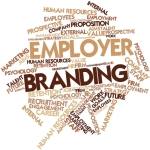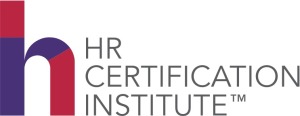Organizations such as Disney, Southwest Airlines, and Apple have made the corporate brand an underlying key to success. Most recently the Human Resource Certification Institute (HRCI) has launched a new corporate brand strategy.
the Human Resource Certification Institute (HRCI) has launched a new corporate brand strategy.
A brand is a promise to customers that a specific level of value, quality and service can be expected. HRCI’s communicates its brand promise in the following way:
 “HRCI’s new brand positioning is, in many ways, not new at all. It simply affirms our longstanding passion for doing what’s best for the industry and our certificants. Together with our certificants and partners, we set the standard for HR certifications.
“HRCI’s new brand positioning is, in many ways, not new at all. It simply affirms our longstanding passion for doing what’s best for the industry and our certificants. Together with our certificants and partners, we set the standard for HR certifications.
The positioning also communicates that being part of the HRCI community provides Human Resources professionals with prestige, recognition and respect. And finally, it reiterates that everything HRCI does – from its certifications to how it conducts itself – is of the highest quality, professionalism and integrity.”
Over the years I have observed many organizations differentiating themselves in the marketplace. In studying brand methodologies, I can’t help but surmise about how Human Resource strategy can help propel organizations in keeping and exceeding their brand promise. Therein lies why HR should care about corporate brand strategy. HR strategy can connect purpose to people and vice versa.
An excellent brand strategy includes the following benefits, making a great business case:
- Attract and retain talent
- Increase financial performance
- Increased engagement of both customers and employees
To avoid irrelevancy, HR must be aligned with the overall organizational direction. One way to align with corporate strategy is for HR to build corporate brand promises into its core strategy.
Here how HR can integrate the corporate brand:
Partner with Marketing. It is time to step away from the boundary that a silo possesses. Partner with marketing on an employer brand proposition. Great things happen when HR and Marketing partner on an employer branding strategy.
Convert brand promise to brand behaviors. Identify the behaviors that support your brand promise. For example in HRCI’s positioning statement above traits and behaviors such as professionalism, integrity, and high quality stand out. HR can build these initial behaviors into its rewards, performance management, and recruitment strategies.
Create, reward, and communicate values and mission. The mission and values should connect with the brand promise. I’ve worked for a hospital where the employees say frequently “this is my hospital.” When employees say, “I am the brand” and start to take responsibility for it, then organizations will begin to see traction towards overall objectives.
Recruit employees to be brand advocates. Recruit employees who are enthusiastic about your brand. If it’s hard to find enthusiasm about the brand then find a way to connect them with the overall purpose and their role in it. Employees are part of your community and will share the compelling brand story with their friends and family.
Develop leaders to reinforce the brand message. Encourage leaders to develop and coach employees to consistently demonstrate brand behaviors. Hire leaders who will lead by example and also demonstrate ideal brand behaviors.
An effective employer brand strategy is not really about what you do it’s about who you are. To demonstrate this, in the words of HRCI, “A strong brand helps us be clear about who we are and what we do differently. It helps us to stand out in a crowded marketplace and helps people more easily recognize and ultimately choose HRCI certifications and offerings over other potential options.”
When thinking about developing an employer brand strategy, here are questions that will help get you started:
- What makes your company and products stand out over its competitors?
- How does top talent rate your company in comparison with its competitors?
- What are the specific attributes of your top talent that will be needed in the future?
- How can you better position yourself to attract the right talent?
- Why would someone want to work for your company?
- What are your company’s strengths and weaknesses?
- What audience do you want to appeal to? Who do you want to attract?
- How can HR and Marketing partner together to develop an employer brand strategy?
